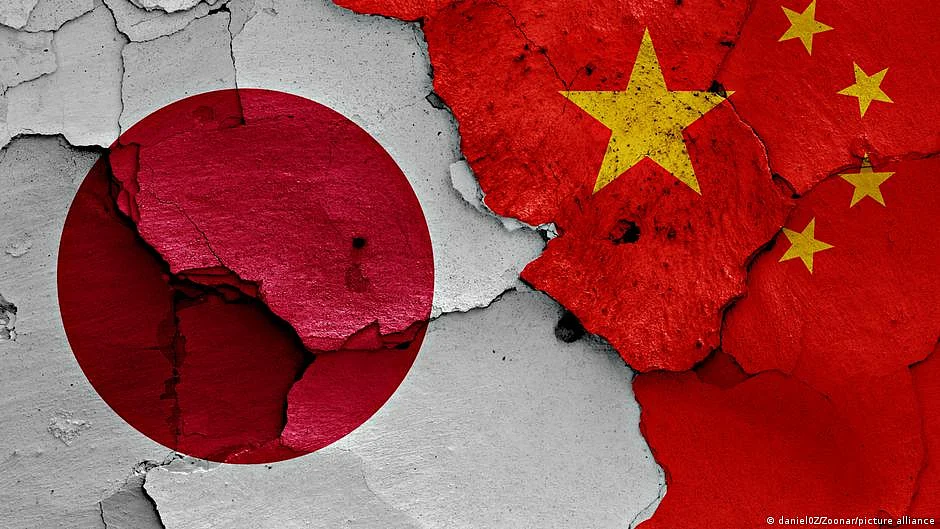Japan: Data leak case sparks concern over foreign scientists
A case of alleged tech leak involving a Chinese researcher at a top Japanese research institute "should serve as a wake-up call" for the government, say experts

Quan Hengdao, a senior principal researcher at the National Institute of Advanced Industrial Science and Technology (AIST), in Tsukuba, in Japan's Ibaraki Prefecture, was arrested recently on suspicion of leaking data obtained as part of his work at AIST to a Chinese company, in violation of the law prohibiting unfair competition.
Quan, 59, had worked at the institute since April 2002 but also became a professor at the Beijing University of Technology in 2006, according to an investigation by the Sankei newspaper.
Both the Beijing university and Nanjing University of Science and Technology, where he was a student, are key institutions in the "Seven Sons of National Defense," meaning they are affiliated with the Chinese military.
It has also been suggested that Quan was part of the Chinese government's "thousand talents program," which aims to attract researchers in key positions to help advance Beijing's scientific and technological capabilities.
What is the researcher accused of?
Quan is accused of passing on confidential data on technologies for synthesizing fluorine compounds to a business venture in China that he set up with his wife.
A few months after the data was sent, the couple's company obtained a patent for the technology in China.
The information that Quan passed on "does not appear to be defense-related or technologies related to economic security," said Jin Matsubara, a former chairman of the National Public Safety Commission and presently a member of the Constitutional Democratic Party of Japan, the center-left party that is the largest opposition force in the Japanese parliament.
But the case highlights the potential damage that could be caused to Japan, he said, adding that it "should serve as a wake-up call" for the government.
"It is important to assess this case from a wider perspective," he said. "There are two aims of the Japanese laws on science and technology; the first is to prevent the drain of advanced technologies and the second is to promote international exchanges and to invite foreign researchers with exceptional knowledge and talent to collaborate with Japanese experts," Matsubara underlined.
"That is why there are so many Chinese and Russians at research institutions and universities in Japan," he told DW. "Those foreign researchers have become so important that some institutions cannot operate without them."
Restrictions on sharing cutting-edge tech
Japan and Western countries like the United States have become increasingly wary in recent years about the transfer of cutting-edge technology to China.
US President Joe Biden's administration said it wanted to prevent Western advanced tech from being acquired by Chinese armed forces and intelligence agencies.
Last year, Washington imposed restrictions on China's access to high-end chips and chip-making equipment, citing national security concerns.
Japan and the Netherlands also recently announced new export restrictions on chipmaking technology, without naming China.
Matsubara points out that the terms of China's National Intelligence Law require all Chinese to share all knowledge they have obtained overseas with the state, despite any confidentiality agreements they may have signed.
And that means that "every Chinese person has the potential to become a spy," he added.
"This is why countries like Japan and the US have no choice but to exclude Chinese researchers from institutions that deal with highly sensitive economic or security-related technologies through the effective application of a security clearance system," he said.
More active spies in Japan?
Some believe that successive Japanese governments have failed to take the necessary precautions and that national security is being compromised.
"I cannot understand how Quan was permitted to remain in that post for 20 years without being subject to some sort of scrutiny," said Yoichi Shimada, a professor of international relations at Fukui Prefectural University.
"To me, this just shows how lax we have become when it comes to the economic future of Japan and our future security. It really is unforgivable."
Shimada stressed he is "certain there are many more active spies from China and elsewhere" in Japan. He called on the government to not wait any longer to tackle the problem.
"My sense is that this government and universities have been too weak on these problems and this has just revealed the scale of the problem," he said.
Follow us on: Facebook, Twitter, Google News, Instagram
Join our official telegram channel (@nationalherald) and stay updated with the latest headlines
